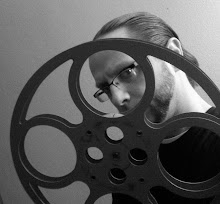Summer is the time for
blockbusters, and this week Reel Speak pays tribute to the godfather of modern
blockbuster films, Steven Spielberg, with two blogs covering a pair of his most
iconic films. Read the first one HERE.
“I own an island…”
This month marks the 25th anniversary of Steven
Spielberg’s JURASSIC PARK.
The year that was 1993 was a life-changing, one-two punch
for director Steven Spielberg. Having already cemented his name in cinematic
legend with hits such as JAWS (1975), CLOSE ENCOUNTERS OF THE THIRD KIND
(1977), and E.T. THE EXTRA-TERRESTIAL (1982), he would deliver not one, but two films in 1993 which would make
history. In November of that year he would release his WWII holocaust drama
SCHINDLER’S LIST; a film which would earn him seven Oscars, including Best
Director and Best Picture. But only five months before he sent audiences into a
sobering reminder of the horrors of war, he would get those same audiences
drunk with childhood glee with living, breathing dinosaurs in JURASSIC PARK.
Based on the popular novel by the late Michael Crichton,
JURASSIC PARK told the story of a billionaire and his team of genetic
scientists who brought dinosaurs back to life, and populated a theme park with
them before things started going wrong. The challenge to resurrect dinosaurs in
the film was a great one, and it appropriately was an equal challenge for
Spielberg. Just like in the film, Spielberg grasped a new technology, called
CGI, and suddenly it was possible to see, play with, run with, and run away
from dinosaurs. By using a combination of new tech and classic animatronics,
JURASSIC PARK immediately separated itself from the old, choppy dinosaurs that
populated B-movies for decades. The usage of the tech would change filmmaking
forever.
With an excellent cast of Jeff Goldblum, Sam Neill, Laura
Dern, Richard Attenborough, Samuel L. Jackson, B.D. Wong, Wayne Knight, Bob
Peck, Joseph Mazzello, and Ariana Richards, and a script which brought the
thrills as much as thoughtfulness, JURASSIC PARK instantly captured
imaginations in adults that had been long buried; perhaps extinct since they
stopped playing with toy dinosaurs in the back yard. The results on screen were
spectacular, and the world reacted. JURASSIC PARK became the highest grossing
film of all time; a position it would hold until TITANIC arrived in 1997. To
this day, it is the 24th highest-grossing film in North America, and
the 27th highest worldwide; it is still Spielberg’s biggest
money-maker, and a 3D re-release in 2013 would add more to its tally. The film
was a hit with critics, and would win three Oscars for Best Sound Mixing, Best
Sound Editing, and Best Visual Effects. At that same ceremony, Spielberg, his
editor Michael Kahn, and composer John Williams would win for SCHINDLER’S LIST.
In the long run, the film would inspire several books, video games, and ongoing
sequels.
*
The legacy of JURASSIC PARK is an ongoing one. The film
would be the swan song to the early part of Spielberg’s career, as he would
move away from blockbuster filmmaking into serious works for over 20 years. And box office numbers, Oscar, sequels, and
longevity from one generation to the next only begins to scratch the surface.
It has that elusive power to awaken the dormant kid in all of us; the one that
ran around the back yard chasing creatures and building worlds out of sofa
cushions. JURASSIC PARK embraced that. Spielberg himself has been quoted as
saying that he dreams for a living, and no other film in the last
quarter-century as dropped us into a dream like JURASSIC PARK.
“Life found a way…”


No comments:
Post a Comment
A few rules:
1. Personal attacks not tolerated.
2. Haters welcome, if you can justify it.
3. Swearing is goddamn OK.